The silence resounding on this blog since the last entry reflects in reverse the noisy mantra that took over my brain and all spare moments of my life the past few weeks, accelerating toward and recovering from performance. Like the shrill chant of “lions & tigers & bears” in The Wizard of Oz, the details of getting ready echo through the days, interrupted periodically by emurgent (that’s emerging and urgent) realizations and distracting surprises (or were they surprising distractions). No enumeration of the checklists I carried on snippets of paper and post-its can quite convey the variety and number of items that called for attention, but a few that became part of the daily rhythm were… [pictured below] keeping the learning going during rehearsal, finishing the choreography in final rehearsals, arranging and rearranging props, translating the learning into program notes for the audience, and continually tweaking the sound system…
…not to mention managing the 325 kids that crossed the stage each day for rehearsal and other shenanigans.
What were the dances? Details to come.
How did it go? Great! The afternoon performance was so much fun that an average of 75% of students brought their families back for the evening performance (which is fabulous for us).
Was it all worth it? Ask me in a few months!

teaching self-assessment
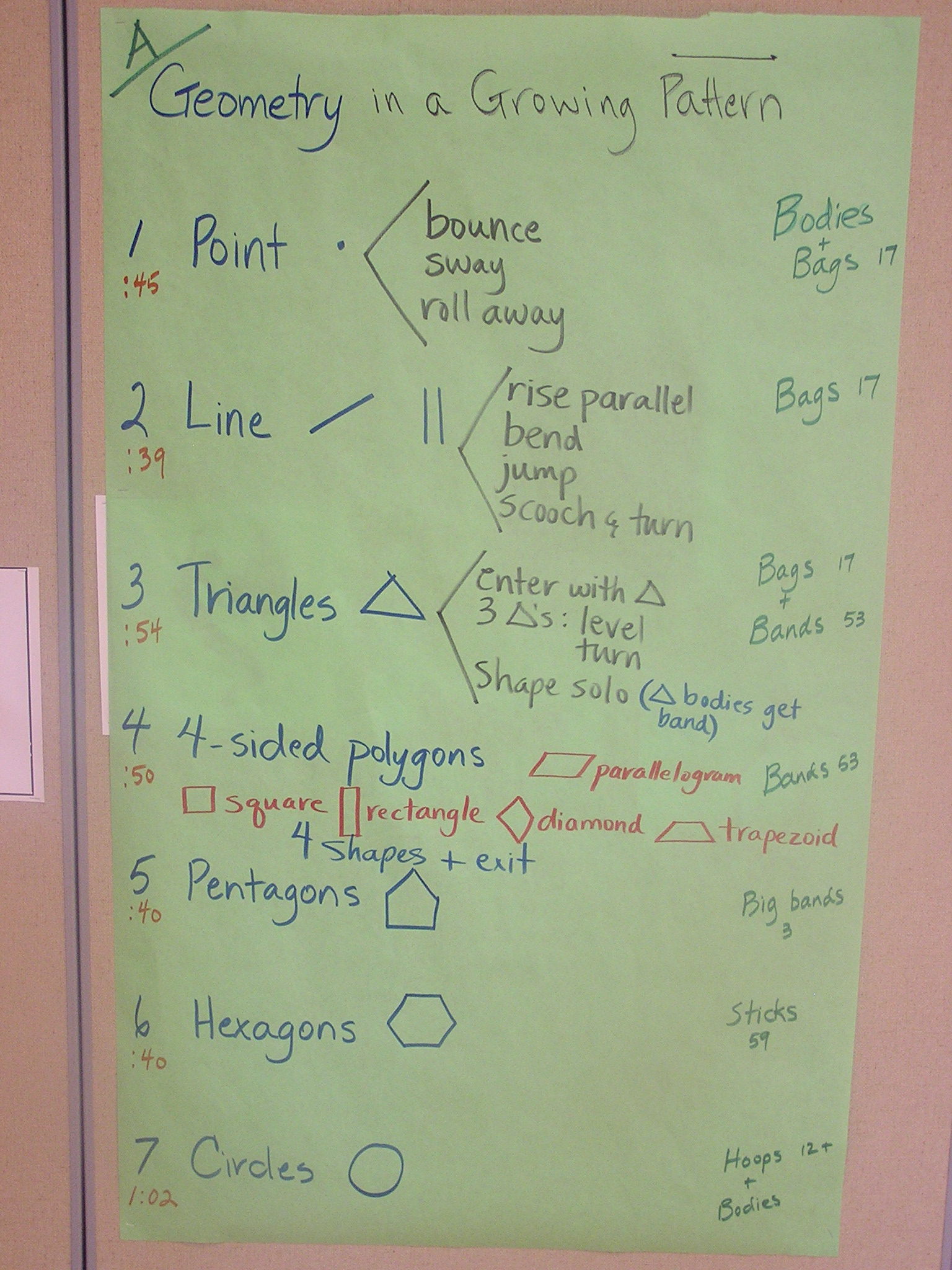
finding time to choreograph the ending of the dance
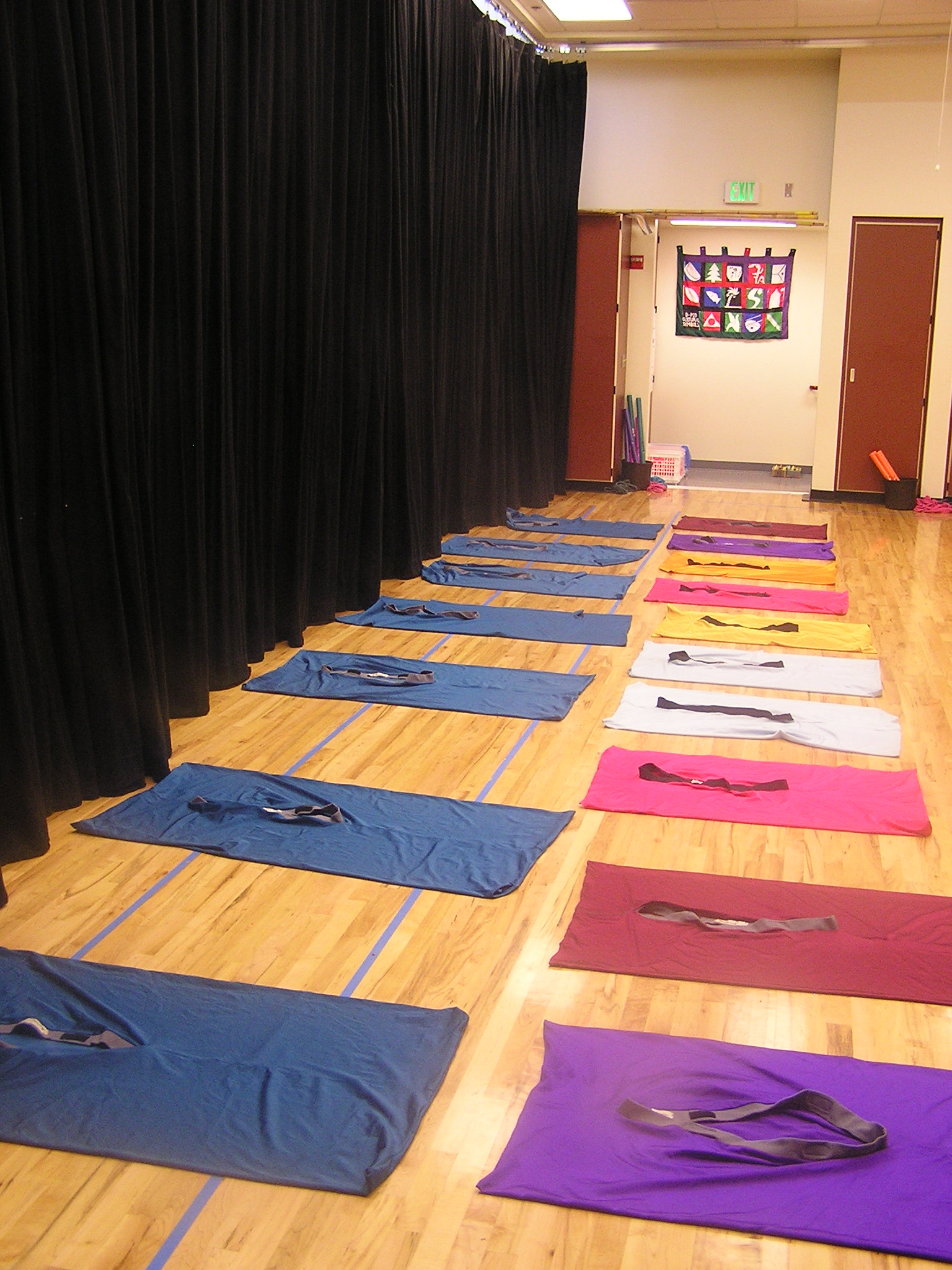
Arranging props
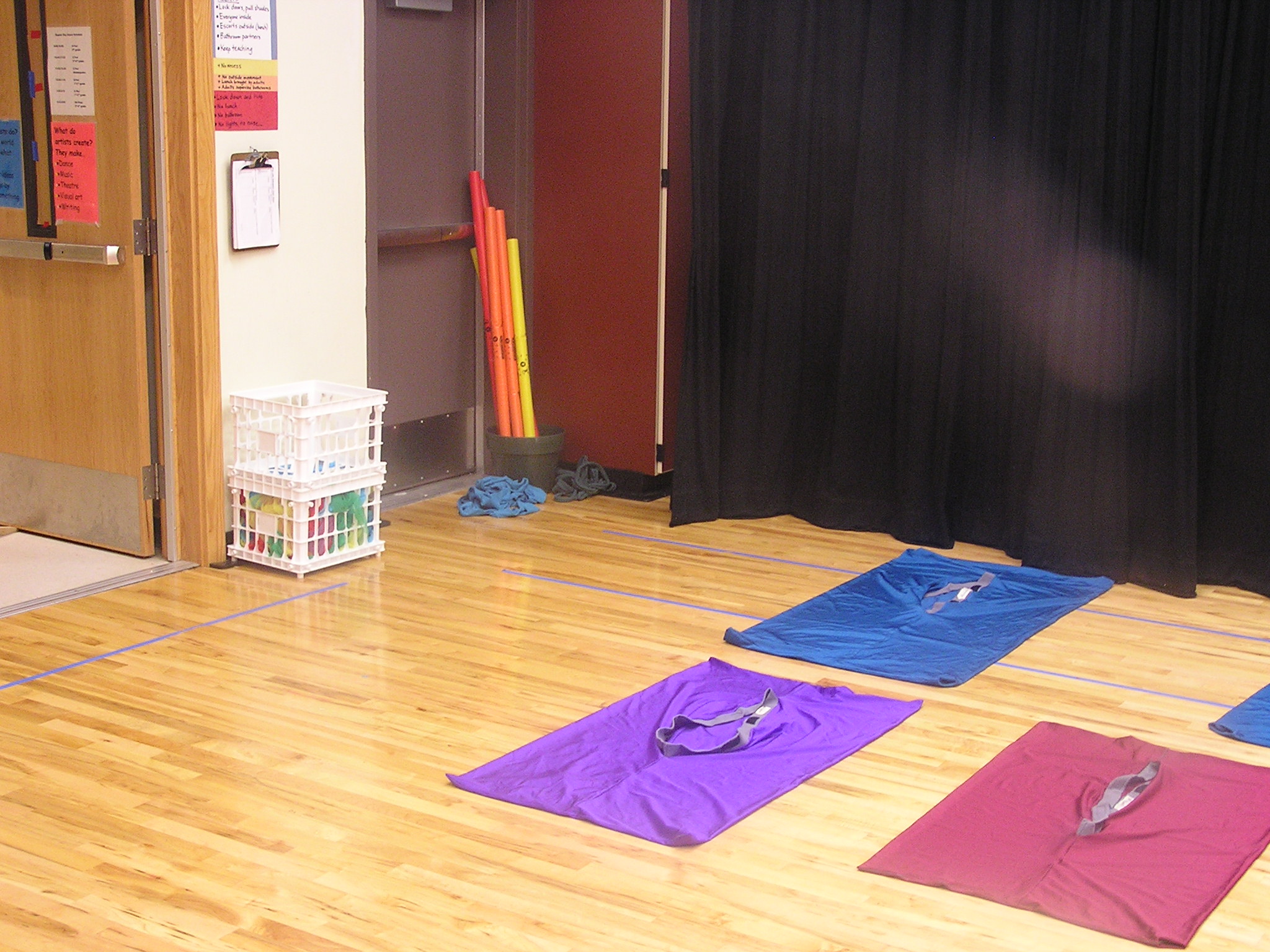
bags & sticks & scarves & bands...
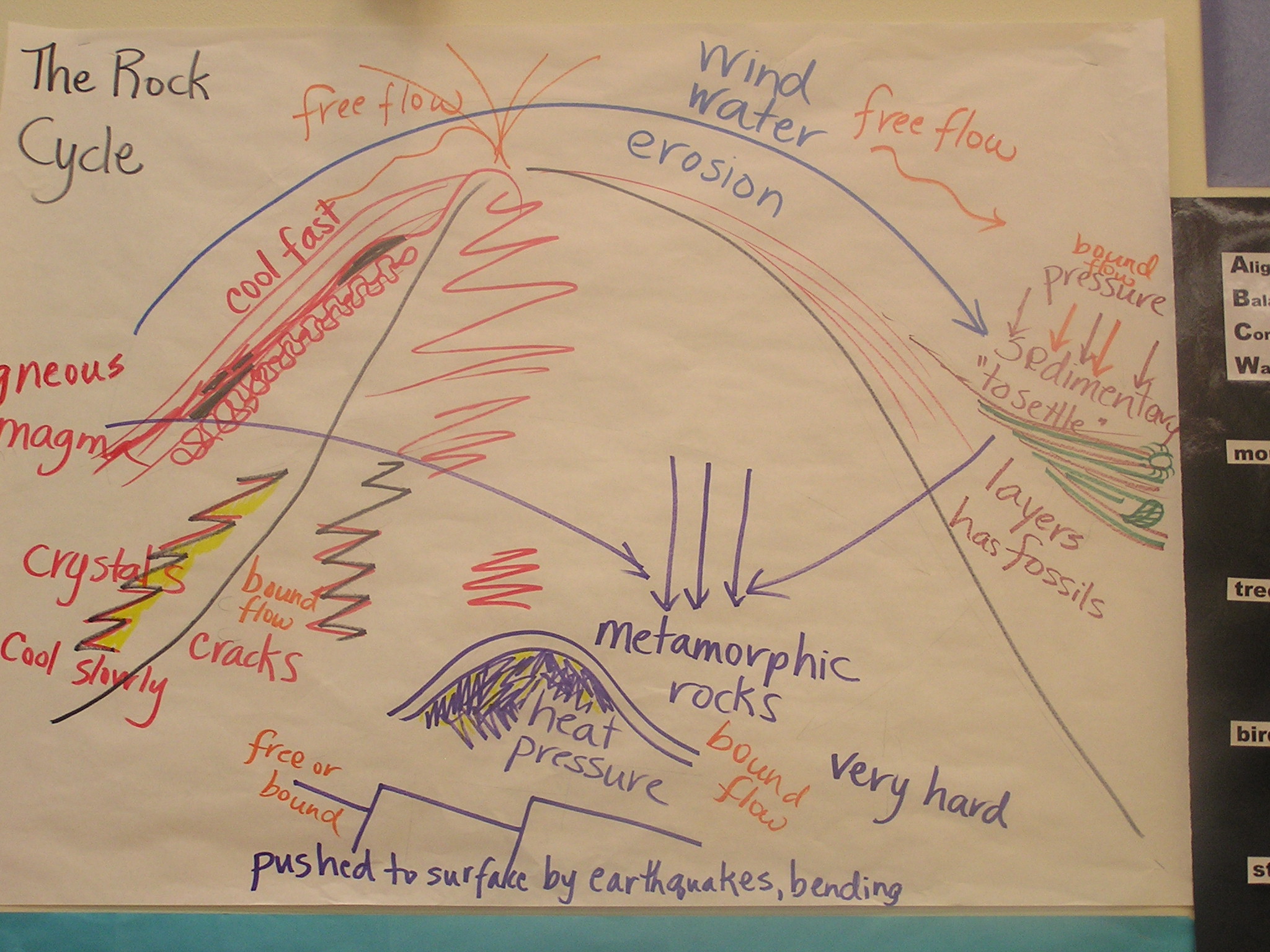
The cycle of sedimentary, metamorphic & igneous rock formation
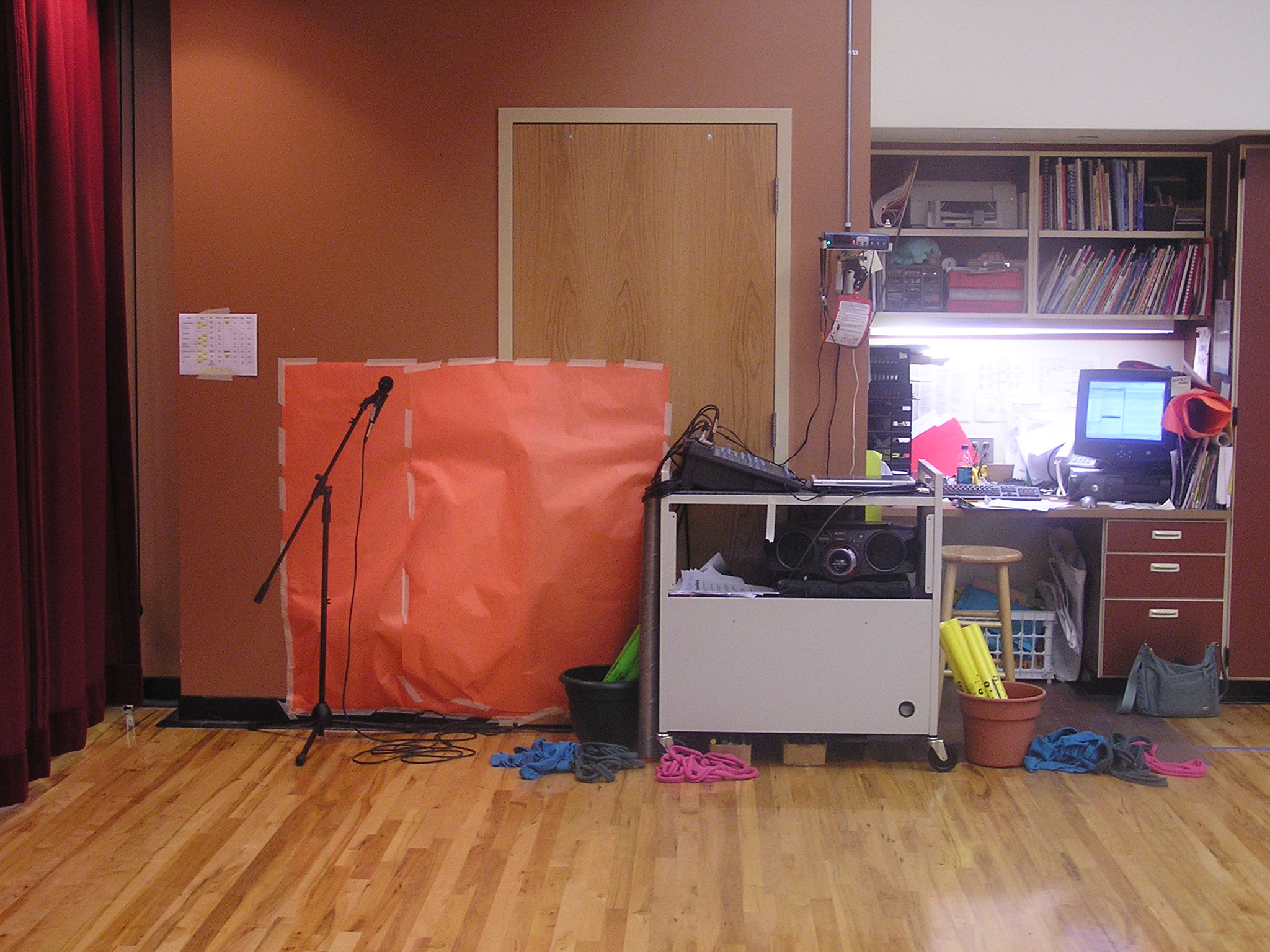
Moving from sound-in-the-classroom to sound on the stage and in the audience
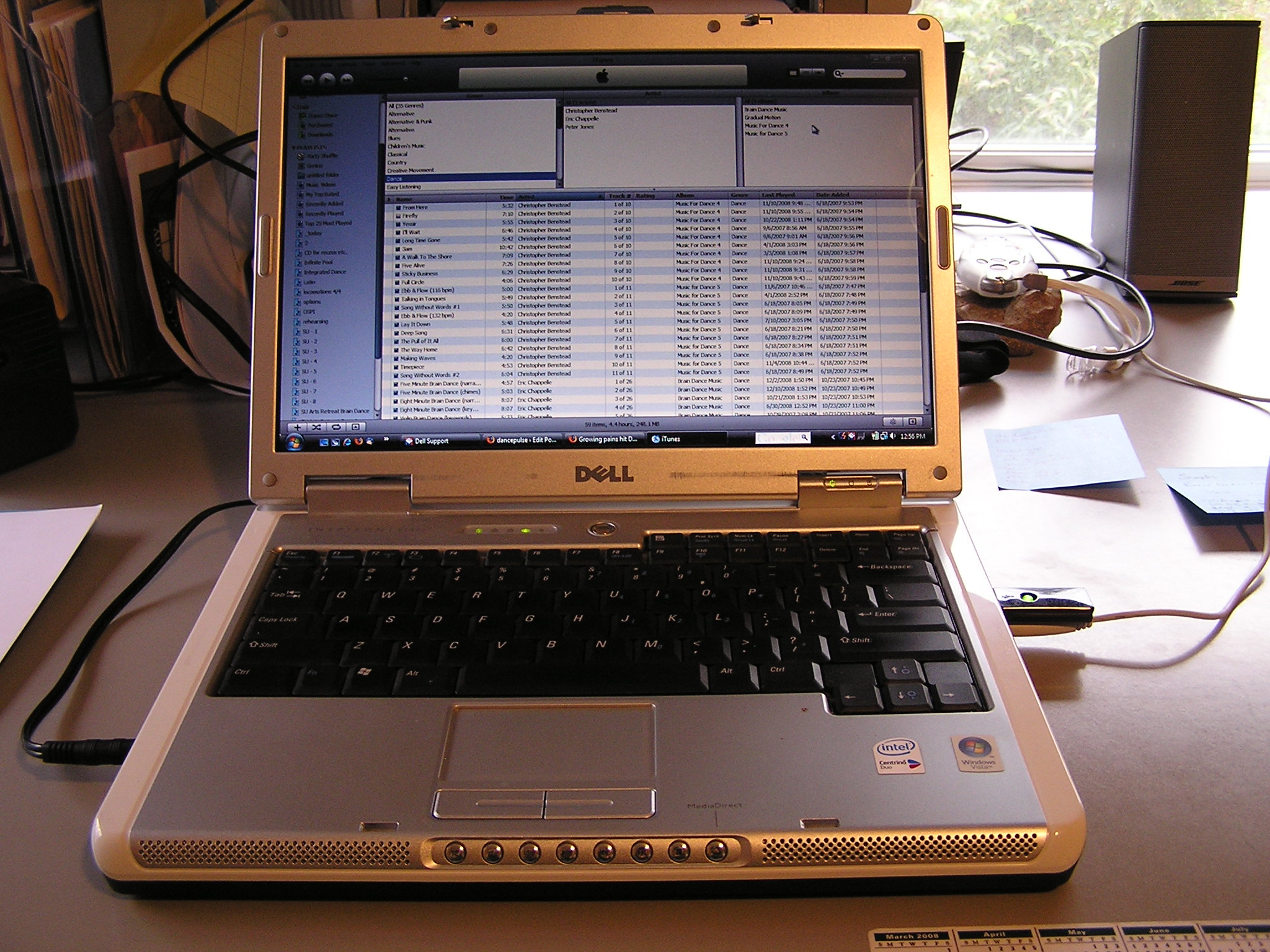
and ensuring a backup in case of computer failure
This is cool. I’m putting a link up on Twitter {grin}.
Grin indeed. So glad your book is winding up! Congratulations!
i’m checking first if this posts. I wrote a novel last time and it didn’t post. I was livid and gave up – but I am out here checking and reading!!! Let’s see if this works!
Wow – I have so much spinning through my own mind right now, that it is 2 am and I am up from my bed to calm my thoughts. Cannot sleep.
We performed tonight. More on that in a bit.
Last time I wrote (the post that was not posted) I shared about my OWN 325 performers, how we were preparing our work of telling folktales from around the world through music and movement. We incorporated storytelling with singing, playing instruments, drama and dance. Whew! And I was thinking then about the excitement of watching your students begin to take the lead, of the moment when you as a teacher are able to let go and the kids take over. In that moment when you know you’ve done the best you can do.
Since then, well, I’ve faced some challenges. I think my 2nd graders were bored for a while (too much repetition) while my 1st graders could not get enough! 3rd grade came together at the last minute, with energy and enthusiasm, and 4th graders were refining and refining and refining. I learned the importance of stepping back, and stepping in, and of taking things apart to put them back together in a more thoughtful and complete way. I learned how to teach a musical concept by exploring it first, then defining (and refining and refining and refining).
Wow, the kids taught me a LOT this year.
We performed this evening. The turn out was unpredictable, so all kids had practiced each part (musical and otherwise) in order to be ready for anything. I think this helped kids to see the big picture, but left me feeling a bit scattered, assigning parts in the moment. It worked, but not 100% smoothly.
4th grade was NERVOUS. perhaps they should not be first next time?. 2nd grade was small, but what a difference an audience made for them. And I felt the most connected to this group as they performed. We had fun. 1st grade came out in droves. And the audience behavior was horrid.
I am horrified at the effect of a noisy audience on my students. Adults began to chatter (were they on their cell phones – really!???!!!!!) and the volume increased… until my 1st grade students, the most excited (and most throughly prepared group), began to check out and chatter themselves.
Now I am no fool. I stood there thinking, “OK – maybe this is too long… the pacing is off… the kids are too spread out… good for the classroom, maybe too much for a performance?… what is going on?… these are first graders people – you need to LISTEN!!!!!”
I am shocked and appauled at this problem, which I have run into more than once during performances now. Last year, it was a spring musical. In the gym. Kids (not students) running – RUNNING – across the “stage” unattended while we performed. Audience talking nonstop. I had to stop the show twice.
This year, I tried the cafeteria. Better for the winter program, but still a lot of chatter. I addressed this BEFORE the program. And DURING. My own students (grade 5) were some of the worst culprits!
This time, the audience behavior affected the performers. They lost focus, momentum, and I nearly lost my cool. I stopped the performance to regain the audience’s attention. But it was never the same. My third graders were able to pull a bit more focus from the audience, but transitions were a challenge. And since about half of my kids didn’t show up, we had to make adjustments on the fly, which didn’t help the flow, to say the least.
The kids did great, made adjustments when necessary and really gave it their all. WHY did the audience fail us? What can I do to address this problem? I’m lying awake thinking I may need to forget about evening performances altogether, or just keep it to a “class” perfromance in my classroom – which has been more successful in the past (smaller, more intimate – more proximity to the kids AND the ADULTS!!!) What a difference a stage could make, with lighting – I think maybe that could help??? I am at a loss, and now I’ve lost sleep over it. Any thoughts??
I’m SO glad your comment posted, and what a wonderful series of points you have! They’re ALL familiar to me! I’ll get back later today… Thanks for posting cause I’ve been thinking about you!
So… yep, all your issues are familiar! And I feel for your late-night soul-searching. I’ve had my own.
*Do focus on the exhilerations — the moments that happen with your students, when they experience the power of rehearsal and the purpose that an impending performance gives them. Yes, there’s that moment when you know you’ve done all you can with where they are — from which moment the piece is theirs, something different perhaps than you conceived of in the first place. That’s a good time to mentally and emotionally step back and look at the piece with fresh eyes to see what it has become.
*Timing the rehearsals is always a gamble. You’re guessing at the intersection of kids and choreography [music] that will allow them to come together just in time for the performance, with mastery but without the fatigue of over-rehearsal. One of my 1st-2nd grade classes this year was ready 4 days too soon, so I switched to running their piece each day and playing games. In the other 1st-2nd grade class, I couldn’t ever get them through the ending, so we had to create an ending at the end of where we arrived!
*Teaching all the parts to everyone is a great solution to the uncertainty of who will or won’t come to the performance. Good solution to the problem, good for the kids to know many parts and understand the whole piece. But no one’s as good as they could have been if they had owned a part, and the process can scramble the brain of any teacher.
*Unpredictable turnout is a heart-breaker. It gets better over time, as you build your program!
*And yes, audience behavior! I’ve lived through cell phones, toddler siblings running free across the stage, parents who sit their younger children on the edge of the stage and prevent others from seeing, parents who cheer for their kids on stage in the midst of the performance as if it was a sporting event… all this, when I’ve painstakingly taught the kids how to be a good audience and assured them that they need to be quiet and focus on stage because EVERYone will hear their stray noises! Oy.
It’s gotten better over the years, but it’s still best if I take time to share with the audience the standards for audience behavior that I teach their kids — so they’ll know what I’m teaching. I’ve also, on occasion, shared with the audience the rubric for performance by which I have the kids evaluate their own performance in the final rehearsals — so the audience can assess the performers by the same standard. It seems to give the audience something to focus on. Also — enlist help — from your principal and other teachers to do a little crowd control and side coaching of the audience!
*Mostly it sounds like you’re doing fantastically! Breathe a sigh of relief, and know you don’t have to do it again anytime soon! By the time you do, you’ll be ready.
Have a great summer! I’ll look forward to seeing you again next year — or stop by here again, and we’ll continue the conversation…